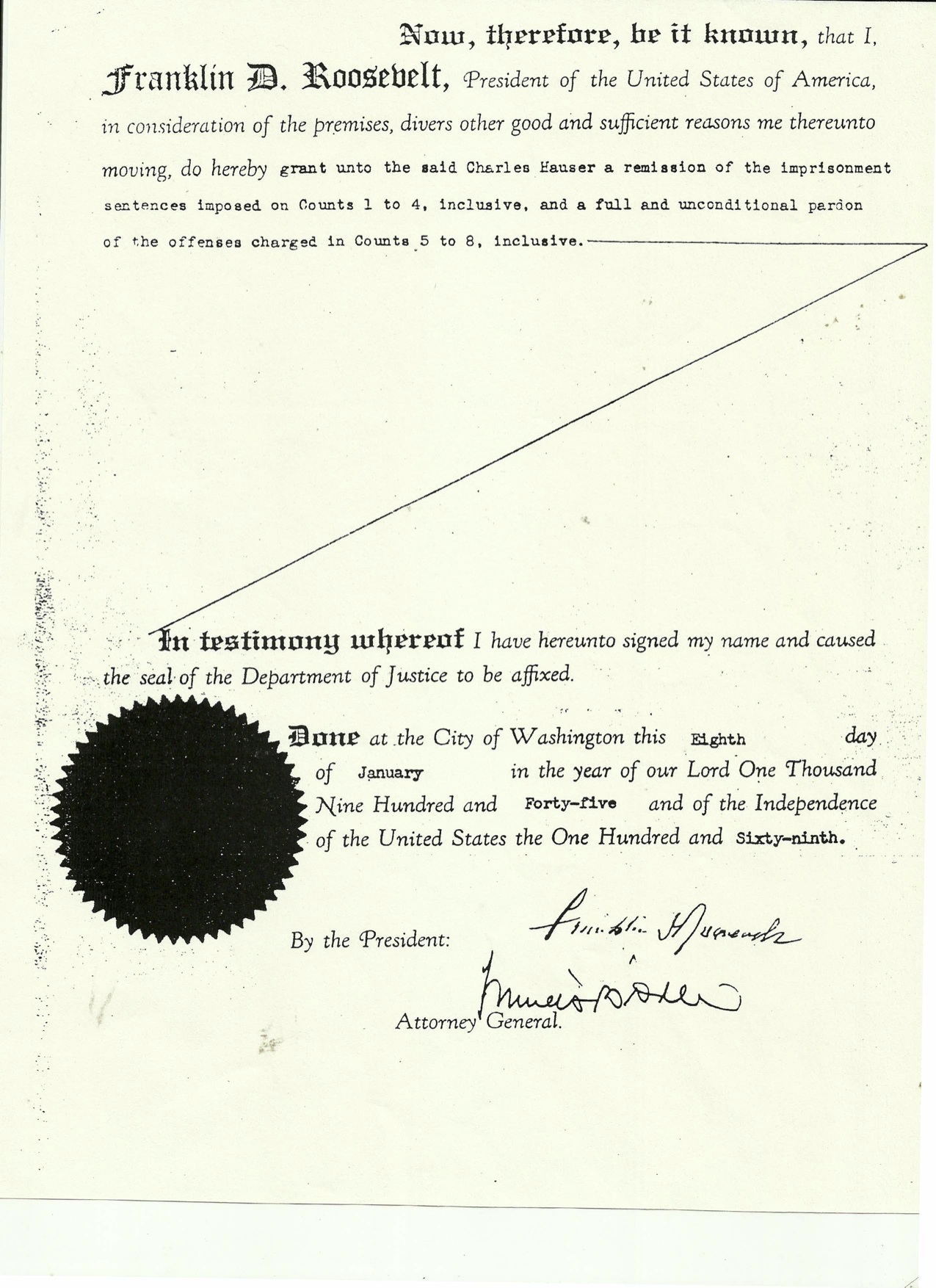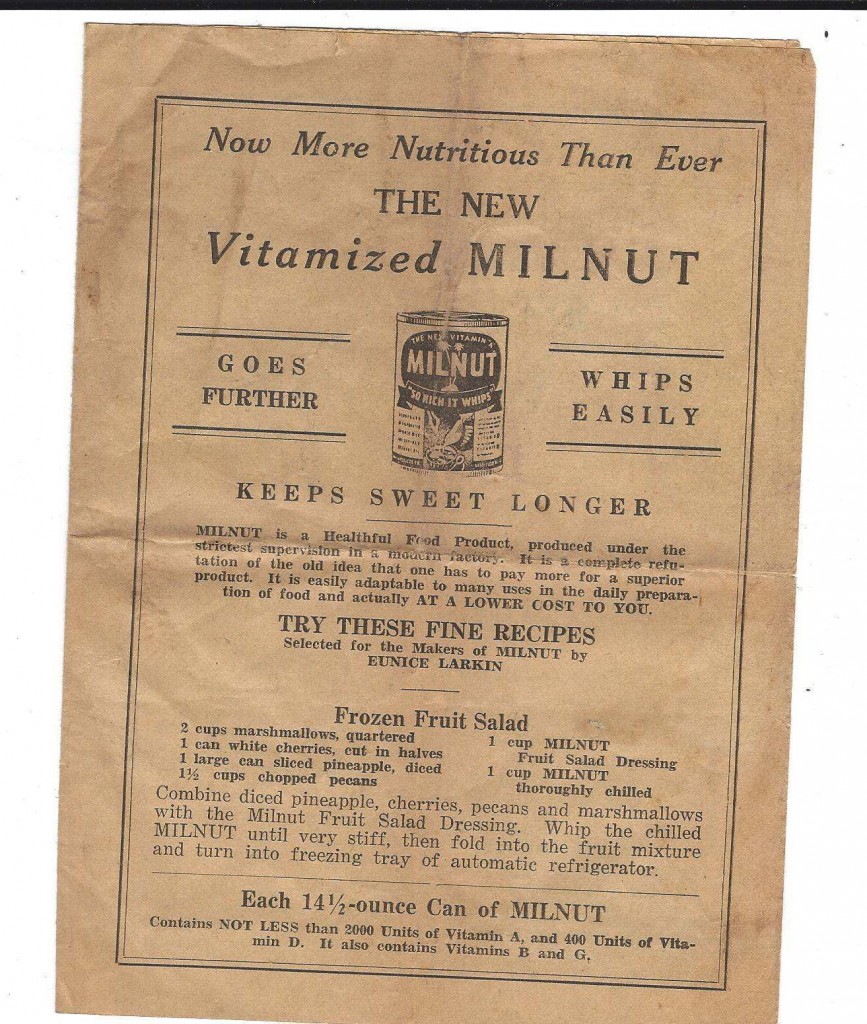This is the final part of my series of posts about Charles Hauser, the Defendant in United States v. Carolene Products. My first post looked at how a federal court struck down the Filled Milk Act in 1972, three decades after the Supreme Court famously upheld it. The second post looks at Hauser’s subsequent criminal conviction in 1943, which was affirmed by the Supreme Court. The third post analyzes the Milnot factory built that straddles the Missouri-Oklahoma border. The final post analyzes a subsequent pardon signed by President Roosevelt in in 1945.
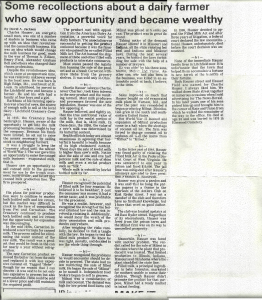 In 1941, Hauser and his associate William Hartke were indicted on 8 counts of shipping filled milk.
In 1941, Hauser and his associate William Hartke were indicted on 8 counts of shipping filled milk.
The indictment is in eight counts, charging eight separate shipments of filled milk from Warsaw, Indiana, to Clarksburg, Parkersburg, Weston, Morgantown, and Moundsville, in the Northern District of West Virginia. All these shipments were made between February and July of the year 1941, and totalled 5,800 cases, of 48 cans to the case.
This conviction was affirmed all the way up to the Supreme Court.
From the Petitioner’s brief to the Supreme Court, it seems that Hauser an Hartke were each sentenced to “to imprisonment for one year, and placed on probation for an aggregate of two years after the expiration of their prison terms and each of the defendants was fined $1,000. on each of the eight counts in the indictment . . . The aggregate sentence of imprisonment against the individual defendants was one year under the first two counts, and six months on the third and fourth counts to run concurrently.”
However, in an unlikely turn, President Roosevelt pardoned his conviction.
According to this article from the Litchfield, Illinois, News Heralrd (4/30/2004):
The jail time was mitigated after Hauser’s attorney appealed to then president Franklin D. Roosevelt. Hauser was given a pardon and it was said that he hung the pardon papers in af rame in the restroom of the Antlers Club on East Ryder Street.
Donna, Hauser’s grandfather graciously provided me with a copy of the pardon.
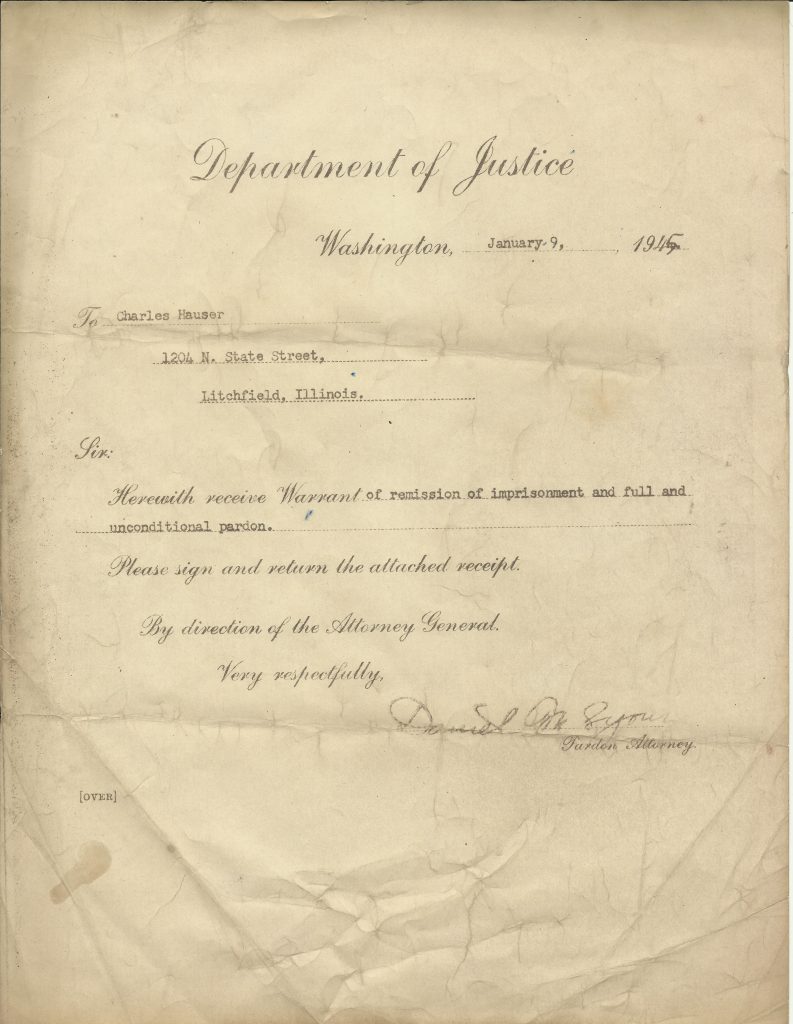
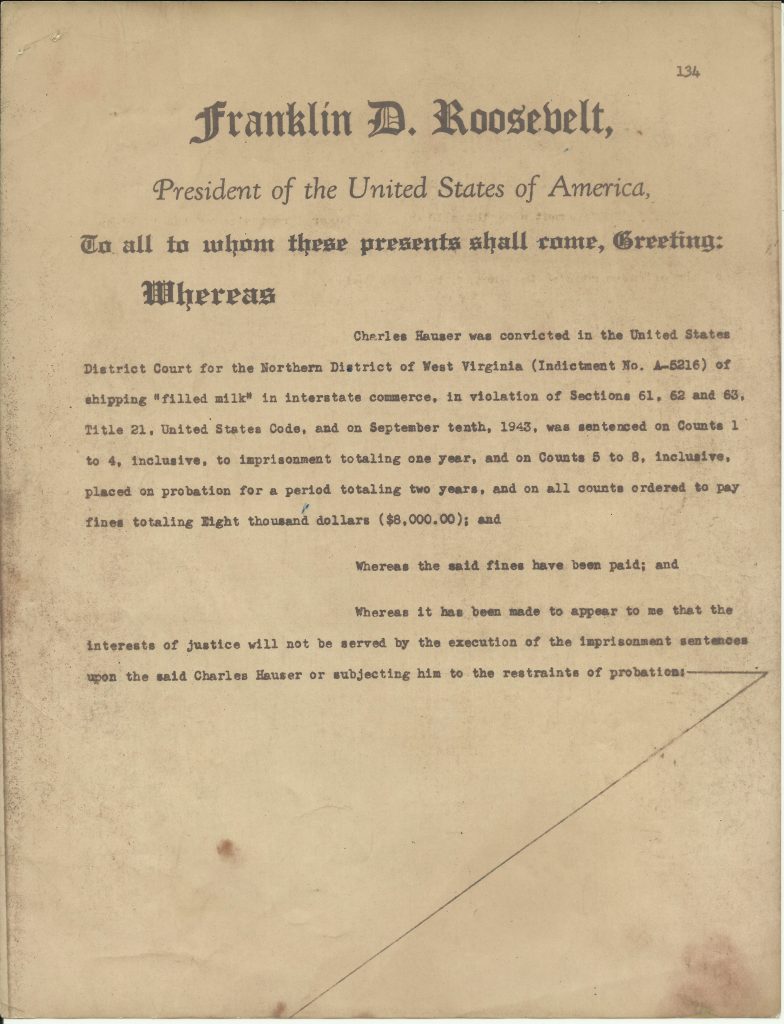
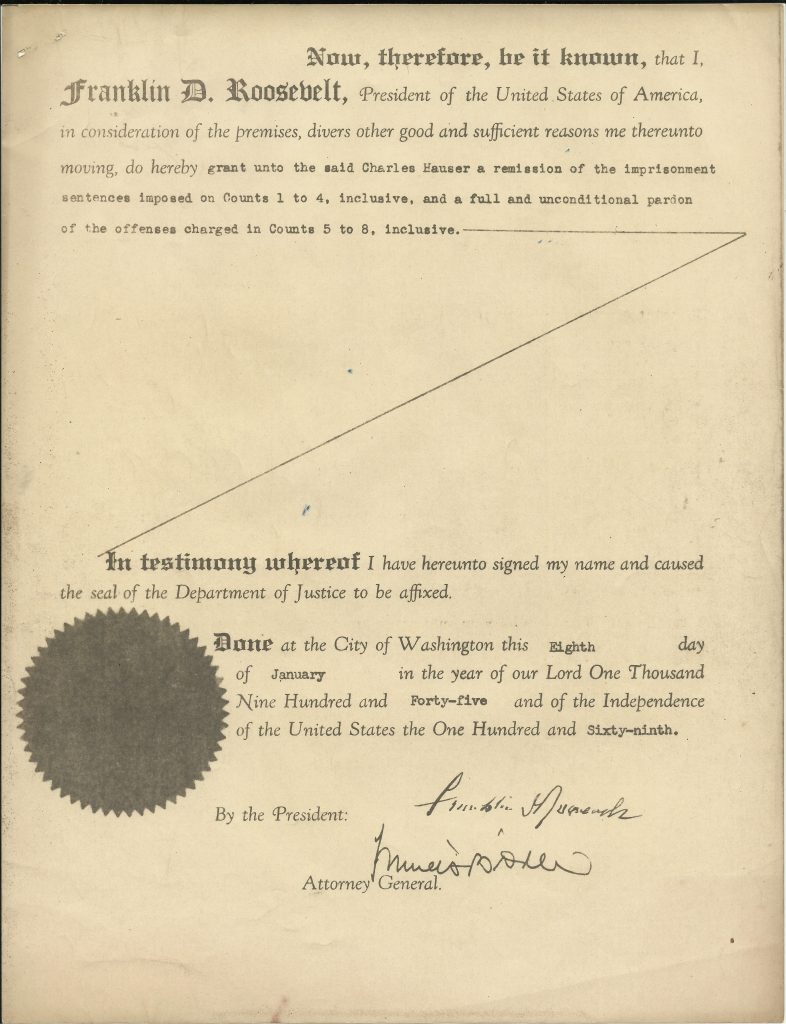
This document is amazing.
First, it was signed by President Roosevelt–the same President whose Justice Department had prosecuted Hauser several times, and Attorney General Francis Biddle, who lead the prosecutions of the Filled Milk Act. Roosevelt granted “a remission of the imprisonment sentences imposed on Counts 1 -4”–a total of one year term to run concurrently. Roosevelt also granted a “full and unconditional pardon of the offenses charged in Counts 5 to 8, inclusive.” Counts 5-8 did not have any jail time attached to them. (I have been unable to find the indictment).
Second, the timing on this case is unreal.
The case was argued at the Supreme Court on October 16 and 17, 1944. It was decided a three weeks later on November 6, 1944! That is fast, even for a 14 page SCOTUS opinion (Black and Douglas concurred in the result without an opinion).
President Roosevelt signed the pardon on January 8, 1945. Barely two months later. That is swift justice! And, in another twist, Roosevelt died on April 12, 1945 barely three months. Roosevelt only commuted 25 sentences petitions in 1945, so this may have been one of the last commutations he granted.
Third, in a fascinating coincidence, it seems FDR also pardoned Roy Olmstead, the defendant in Olmstead v. United States! From an article in the Mississippi Law Journal (See also PBS, Time, and History Link.):
In the short term, although Olmstead’s conviction was upheld by the highest Court in the land and he served out the four years of his sentence, Olmstead eventually won his case in another way: he received a full pardon from President Franklin D. Roosevelt during the Christmas week of 1935, a pardon which restored his civil rights and relieved him of the $8,000 fine plus court costs that he had never paid. 70 It is hard to say whether the pardon reflected distaste for the government wiretapping that had netted Olmstead or simply for the recently repealed failed experiment with Prohibition. Whatever its motivation, the pardon turned out to be a good bet on the future: Olmstead experienced a religious conversion and went on to live a quiet and law-abiding life over the next three decades, teaching Sunday school and faithfully visiting prison inmates to spread the good word
In total, Roosevelt granted 3,687 pardons in his four term in office. What are the odds that two of them were from famous Supreme Court cases? I may try to FOIA the rest of the pardons.
Oh, and as far as I can tell, Hartke, who owned 49% of the Carolene Products company, did not receive a pardon.
What an amazing story.
